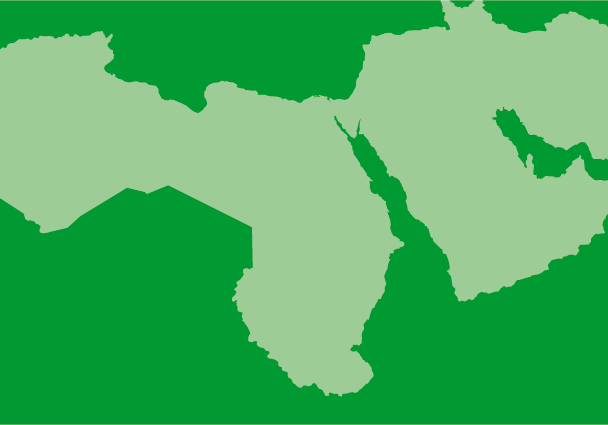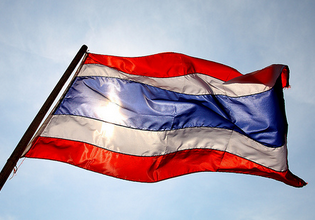
Jan 20, 2016 | News
The Indonesian government’s efforts to counter and punish attacks such as the deadly assault in central Jakarta last week can only succeed if they strengthen respect for rights and rule of law, said the ICJ today.
Indonesia’s National Counterterrorism Agency (BNPT) and the State Intelligence Agency (BIN) claimed that they lacked sufficient authority under the country’s existing Anti-Terrorism Law to stop the attacks.
Eight people were killed in an attack by armed men in central Jakarta on 14 January.
“Plans discussed by Indonesian authorities to amend the 2003 Anti-Terrorism Law to make it ‘more effective’ in addressing terrorist threats mostly focus on weakening hard-won protections for suspects and the rule of law,” said Emerlynne Gil, ICJ’s Senior Legal Adviser for Southeast Asia.
“In order to help the Indonesian government meet its obligation to protect its people from acts of terrorism, experience from around the world and Indonesia’s Suharto era shows that security can only be achieved through justice,” she added.
The head of the National Police, Gen. Badrodin Haiti, said that the Anti-Terrorism Law prevents police from prosecuting Indonesians returning home after allegedly serving as combatants in Syria.
One of the proposals is to give intelligence officers the authority to make arrests under the Anti-Terrorism Law.
“Giving intelligence officers the authority to make arrests will likely lead to an increase in violations of human rights,” said Gil.
“The roles of intelligence and of law enforcement are fundamentally different and need to remain separate,” she added.
The ICJ pointed out that there were not enough safeguards under Indonesia’s laws, specifically the State Intelligence Law, to ensure the accountability of the intelligence agency or its officers.
Another proposal is that authorities be given the power to arrest anyone they see as having a “strong indication” to be planning acts of terrorism.
The ICJ, however, observes that this proposal appears to allow Indonesian authorities to avoid judicial oversight so that it would be easier for them to arrest any person, irrespective of whether there is sufficient evidence of criminal activity or an intent to prosecute.
This proposal also appears to allow authorities to detain and interrogate persons suspected of involvement in terrorist acts with a view to gaining intelligence information without necessarily contemplating the filing of criminal charges.
As ICJ’s Eminent Jurists Panel on Terrorism, Counter-terrorism, and Human Rights has underscored, the practice of arrest and detention for the sole purpose of intelligence gathering may mean the arrest and detention of those “who are not necessarily criminal suspects, but who are also believed to have information that will ‘substantially’ assist the collection of intelligence relating to terrorism.” Detaining people for the sole purpose of intelligence gathering in the absence of evidence of criminal activities is a form of arbitrary detention.
Such a practice can also lead to secret or unacknowledged detention, which under international law constitutes enforced disappearance and is absolutely prohibited, the Geneva-based organization adds.
“The obligation to protect human rights and keep people safe from acts of terrorism are not at opposing poles,” said Gil. “They are complimentary and mutually reinforcing duties of protection incumbent on the State.”
“In fact, protecting human rights can be an effective shield in defending societies from acts of terrorism,” she added.
All measures to counter terrorism must strictly comply with obligations Indonesia has under international law.
Contact:
Emerlynne Gil, Senior International Legal Adviser of ICJ for Southeast Asia, t: +66 840923575 ; e: emerlynne.gil@icj.org
Background:
Indonesia’s Anti-Terrorism Law requires judicial approval to arrest a suspect in a terrorism case. Under the law, authorities may arrest any person “strongly suspected of committing a crime of terrorism on the basis of sufficient initial evidence.”
The Chairperson or Deputy Chairperson of a District Court determines whether sufficient initial evidence exists or has been obtained by authorities.
Under article 42 of Indonesia’s State Intelligence Law, the accountability of intelligence operations of the State Intelligence Agency is in principle ensured through a written report on these operations submitted to the President of Indonesia.
This provision has been criticized for failing to provide sufficient accountability, as the presidency is firmly within the Executive branch and lacks capacity to investigate and prosecute in the ordinary criminal justice system.
Furthermore, article 24 of the State Intelligence Law provides that the State has the obligation to give “protection” to all intelligence personnel when carrying out their intelligence duties and functions. Such protection is extended to their family members.
The law does not define “protection” and hence may be construed as the State being obliged to grant immunity to intelligence personnel and their family members from criminal prosecution or civil liability.

Jan 20, 2016 | News
The ICJ supported the convening of a three-day meeting of the Faculty of Law of the University of Zimbabwe. The meeting reviewed the content of the courses offered at the University with the view of aligning the subject matter to the new constitution.
The Dean of Law Mr Magade noted in his introduction that “this Curriculum Review gives us a fabulous opportunity to take a long and hard look at ourselves and self introspect and come up with suggestions on how to improve our curriculum. At the end of the day we need to produce a product or graduate that is fit for purpose.”
The meeting took place at the Troutbeck Inn in Nyanga from 18 to 20 January 2016 and congregated 30 academic staff members from the University including a curriculum expert, Dr Nziramasanga, from the Faculty of Education. Dr Mosito and Dr Dingake from the Lesotho and Botswana respectively also contributed to the review process.

Jan 14, 2016 | News
As today marks the fifth anniversary of the toppling of Ben Ali’s regime, the ICJ calls on Tunisian authorities to adopt key legal and policy reforms to combat impunity and to deliver justice to victims of past human rights violations.
Under Ben Ali’s regime, thousands of human rights violations, including torture and other ill-treatment, unlawful killings, enforced disappearances, and arbitrary arrests and detentions, were committed by law enforcement and other security officers.
Numerous similar violations were also committed during the December 2010 to January 2011 uprising and some of them continue today.
“The political and institutional reforms introduced in Tunisia over the past 5 years should not be the sole yardstick to measure the success of the transition,” said Said Benarbia, Director of the ICJ Middle East and North Africa Programme.
“Victims of human rights violations, in particular under Ben Ali’s rule, and during the uprising still await justice,” he added.
Despite several cases being brought before Tunisian courts, in particular military courts, these proceedings have yet to establish the truth about violations, ensure that all those who are responsible are held to account, and fulfill the rights of victims to effective remedies and reparation.
“Until their rights to effective remedies and reparation are realized, including by holding the perpetrators to account, the transition will remain incomplete,” Benarbia said.
Indeed, despite numerous legal and policy reforms, including the adoption of the “Transitional Justice Law”, and the establishment of the Truth and Dignity Commission (Instance Vérité et Dignité), the ICJ is concerned that justice for victims remains mostly elusive.
Obstacles that impede victims’ access to justice and effective remedies include current weaknesses in the Tunisian criminal procedures, such as the broad discretion of the public prosecutor to dismiss cases without providing specific reasons (and the lack of ability of victims effectively to challenge such decisions), the lack of effective measures for the protection of victims and witness, inadequate laws on the definition of crimes and superior responsibility, and the use of military courts to address human rights violations.
“Key reforms both in law and practice are needed for Tunisia to properly address past abuses in Tunisia, end pervasive impunity and provide victims with justice,” Benarbia said.
Contact:
Theo Boutruche, Legal Adviser of the ICJ Middle East and North Africa Programme, tel: +96 170 888 961, e-mail: theo.boutruche(a)icj.org
Tunisia-Anniversary-News Press Release-2016-ARA (Arabic version, in PDF)

Dec 22, 2015 | News
The ICJ today called on Egypt’s newly elected House of Representatives to amend or annul the web of repressive presidential decrees promulgated since the ouster of President Morsi.
“Egypt’s House of Representatives must dismantle the catalogue of repressive presidential decrees that have been used by the authorities to stifle dissent, curtail fundamental rights and freedoms and shield state officials from accountability in cases of human rights violations,” said Said Benarbia, Director of the ICJ’s Middle East and North Africa (MENA) Programme.
Article 156 of the Egyptian Constitution provides that decrees issued by the President while the House of Representatives is not in session must be discussed and approved by the new House of Representatives within 15 days of it convening.
Failure to do so results in the laws being automatically nullified with retroactive effect.
The ICJ and others have detailed how many of these presidential decrees, including the Demonstration Law (No.107 of 2013), the Counter-Terrorism Law (No.94 of 2015), the Terrorist Entity Law (No.8 of 2015), the Law on Military Courts (No.136 of 2014) and laws amending the Criminal Code (No.128 of 2014) and the Prison Law (No.106 of 2015), violate Egypt’s obligations under international law.
Key concerns relate to the right to life, the right to liberty and the right not to be subjected to arbitrary detention, fair trial rights, and the rights to freedom of expression, association and assembly.
These fundamental rights are protected by for instance the International Covenant on Civil and Political Rights, which Egypt ratified in 1982 and which today counts 168 states as parties.
Over the last two years, thousands of individuals have been prosecuted and convicted pursuant to such decrees, including the Demonstration Law, through proceedings that fell short of international fair trial standards.
Further, many of these decrees, in particular the Counter-Terrorism Law and the Demonstration Law, institutionalise the immunity of state officials from legal proceedings against any use of force committed in the course of their duties, including the use of lethal force when it is not strictly necessary to protect lives.
The decrees also fail to provide for any reparations mechanism for victims.
“Egypt’s parliament should, as a matter of urgency, ensure that those who have suffered human rights violations on the basis of these laws obtain effective remedy and reparations, remove all obstacles to justice and accountability, and address the impunity of state officials underpinned by these decrees”, Benarbia added.
Contact:
Alice Goodenough, Legal Adviser of the ICJ Middle East and North Africa Programme, t: +44 7815 570 834; e: alice.goodenough(a)icj.org
Nader Diab, Associate Legal Adviser of the ICJ Middle East and North Africa Programme, t: +41 229 793 804; e: nader.diab(a)icj.org
Egypt-New House of Representatives-News-Press releases-2015-ARA (full text in Arabic, PDF)

Dec 22, 2015 | News
The upcoming Supreme Court verdict in the case of Somchai Neelapaijit is an important test of Thailand’s treatment of cases of enforced disappearance, the ICJ said today.
The Supreme Court is expected to rule on whether the Court of Appeal was correct in overturning the conviction of one police officer for coercion and upholding the acquittals of four other police officers, and whether Somchai Neelapaijit’s family should be permitted to participate in the proceedings as plaintiffs.
The case concerns the 2005 trial of five police officers for coercion and gang-robbery after Somchai Neelapaijit, a leading Thai lawyer and human rights defender, was last seen on 12 March 2004 being pushed into a car by several men in Bangkok.
In March 2014, the ICJ published a report in Thai and English, which summarises the history of the case and provides a background to the upcoming decision, which will be delivered in Bangkok on 29 December 2015.
“This decision is an important milestone in the long and torturous history of this case,” said Sam Zarifi, the ICJ’s Regional Director for Asia and the Pacific.
“But whatever the result, Thailand must not waver from its repeated commitments to promptly and effectively investigate this enforced disappearance, to seek to identify those responsible and bring them to justice, and to provide the family with full remedies and reparation,” he added.
The police never charged the five police officers with more serious crimes – despite the statements of numerous officials, including past Prime Minister Thaksin Shinawatra, expressing certainty about his death – as Somchai Neelapaijit’s body or remains were never found.
The Department of Special Investigations (DSI), often described as the FBI of Thailand, is still conducting an investigation into his fate or whereabouts.
Angkhana Neelapaijit, Somchai Neelapaijit’s wife and now Commissioner of the Thai Human Rights Commission, told the ICJ: “Ensuring that all victims of enforced disappearance have their rights fully recognised by the Thai courts is equally important to me as seeking justice in my own case. My long battle through Thailand’s justice system has shown me Thailand’s laws are currently inadequate to deal with cases of enforced disappearance and that significant reforms are needed before the rights of victims are fully recognized.”
Contacts
Sam Zarifi, Regional Director, Asia-Paicific Programme, sam.zarifi(a)icj.org, +66 (0) 80 781 900
Kingsley Abbott, International Legal Adviser for Southeast Asia, Asia-Pacific Programme, kingsley.abbott(a)icj.org, +66 (0) 94 470 1345
Additional information:
On 11 December 2015, the ICJ published an English version of its Practitioners Guide “Enforced Disappearance and Extrajudicial Execution: Investigation and Sanction”, originally published in Spanish in March 2015.
Thailand-Somchai Verdict-News-Press releases-2015-ENG (full text, in PDF)







